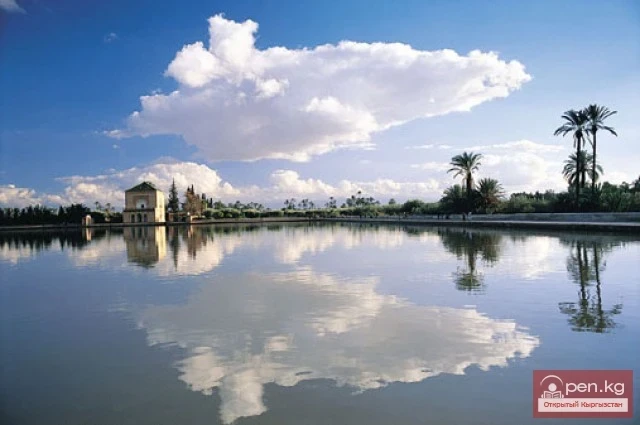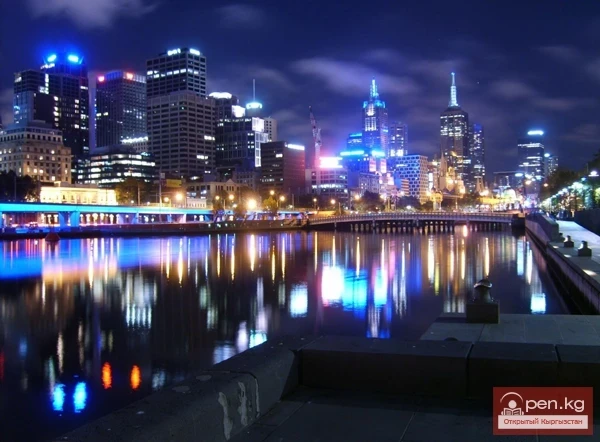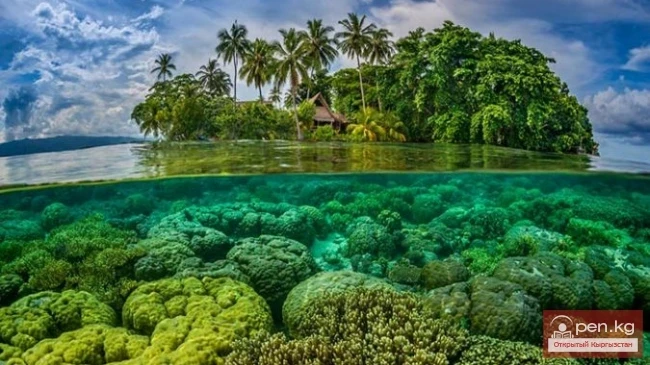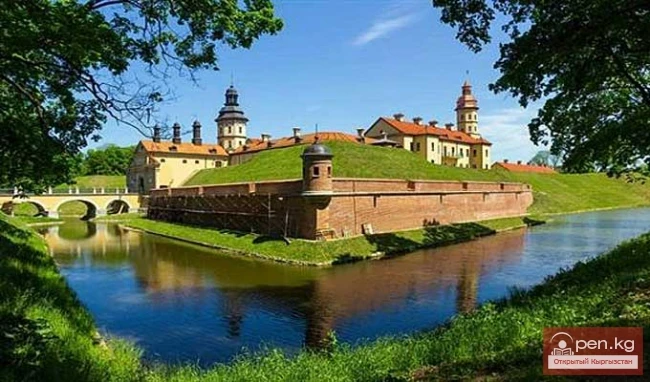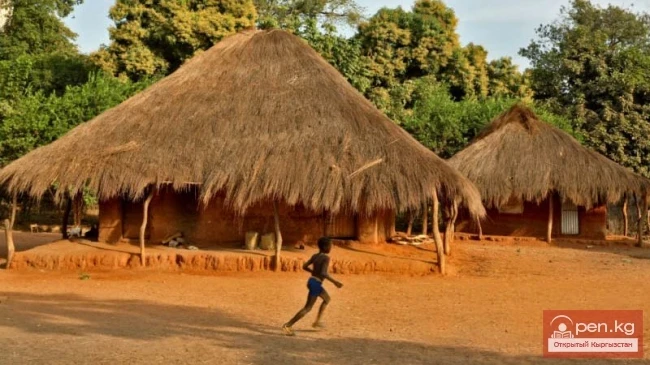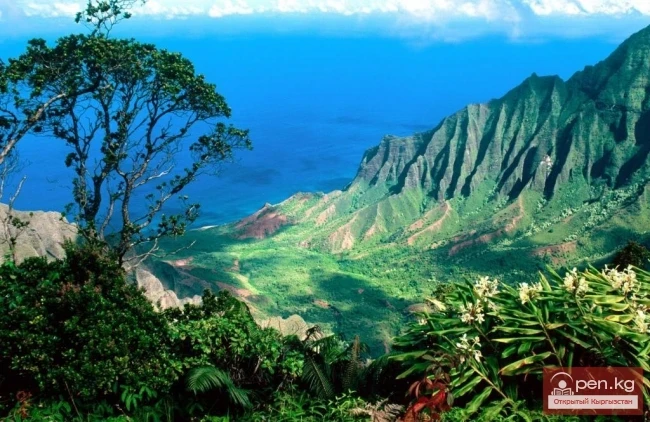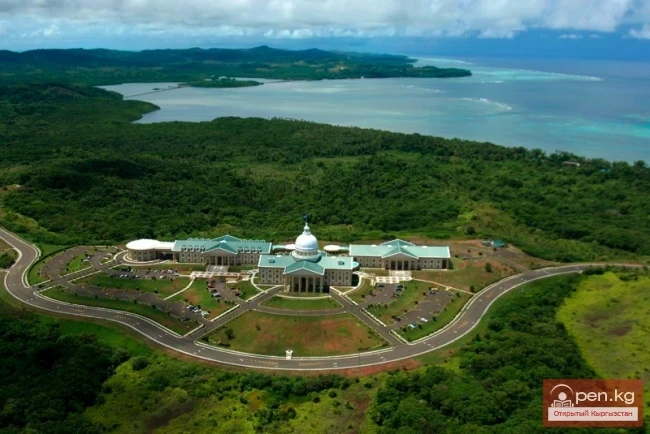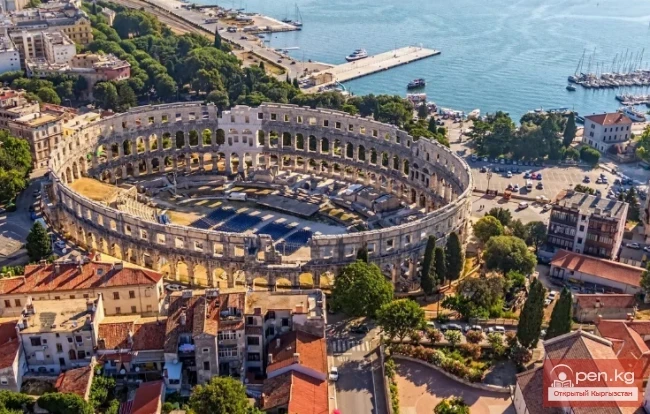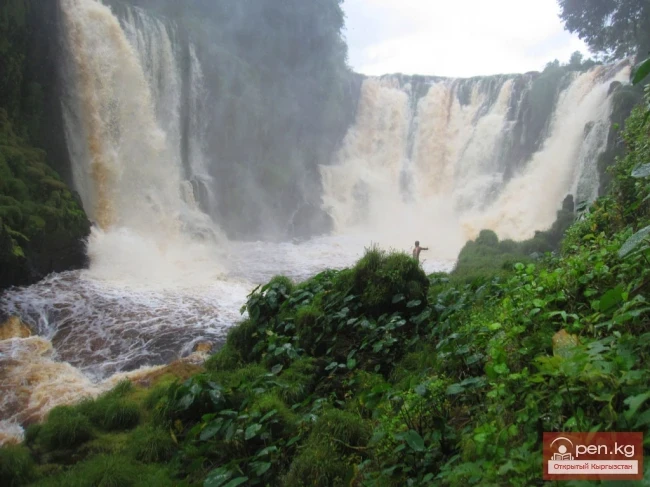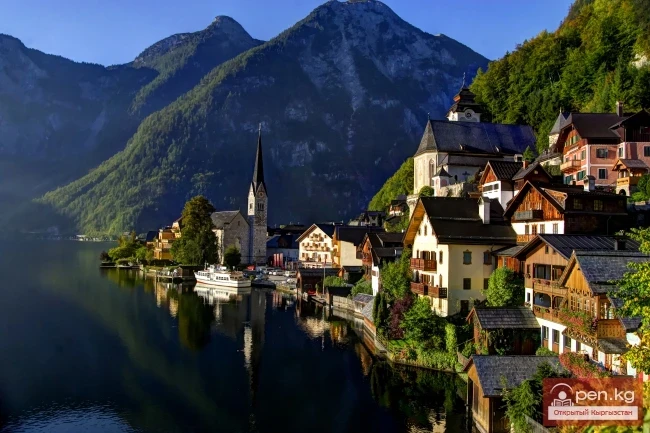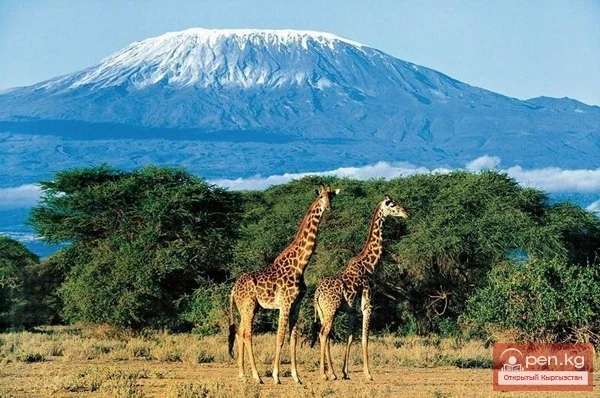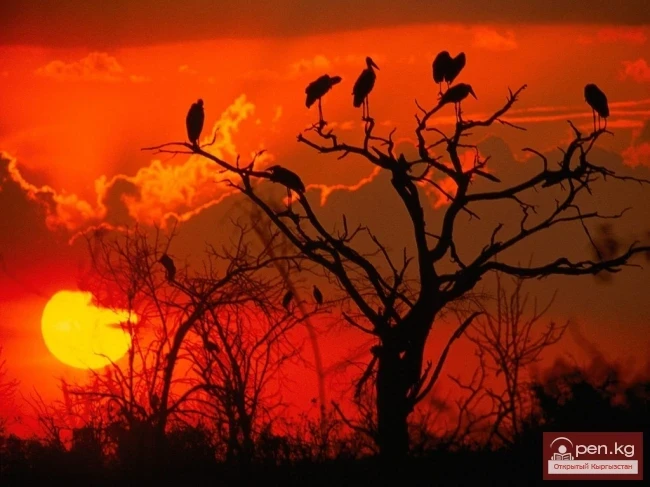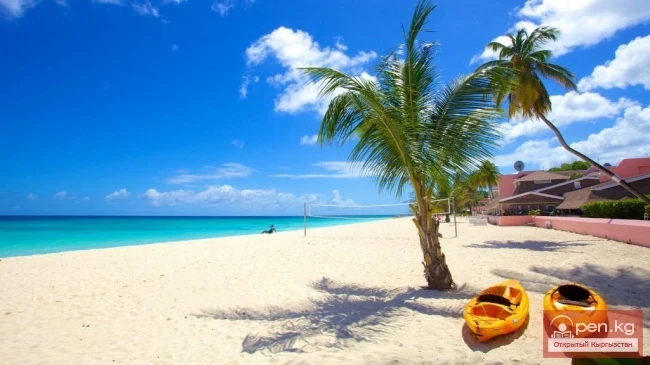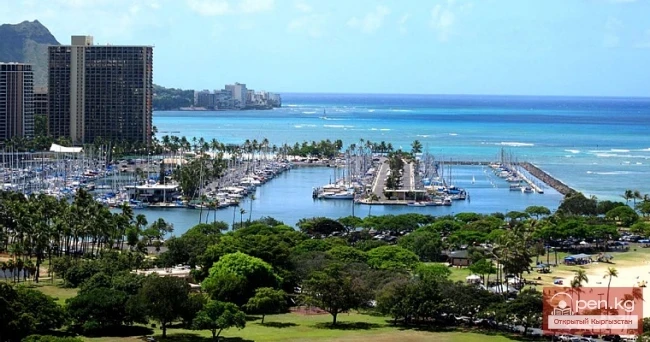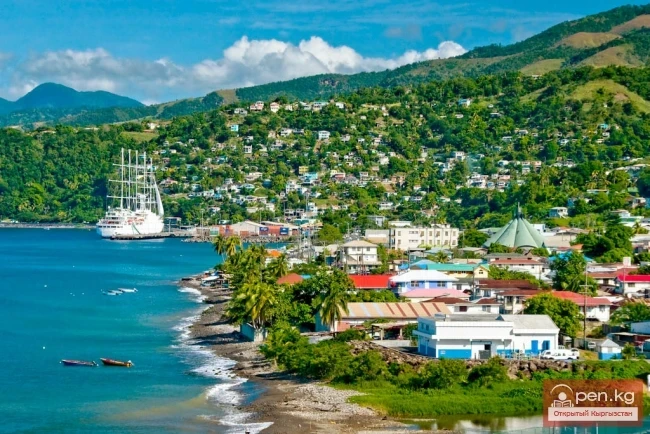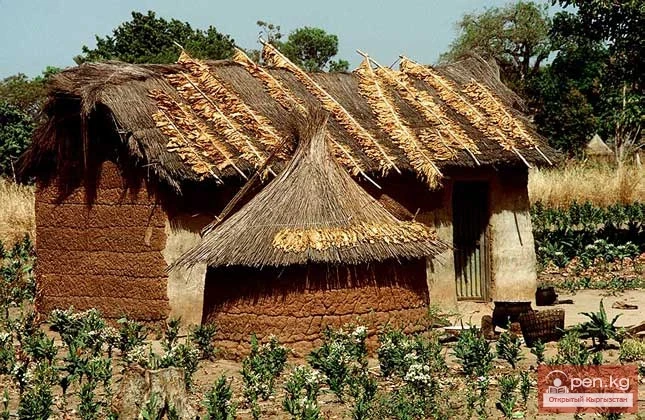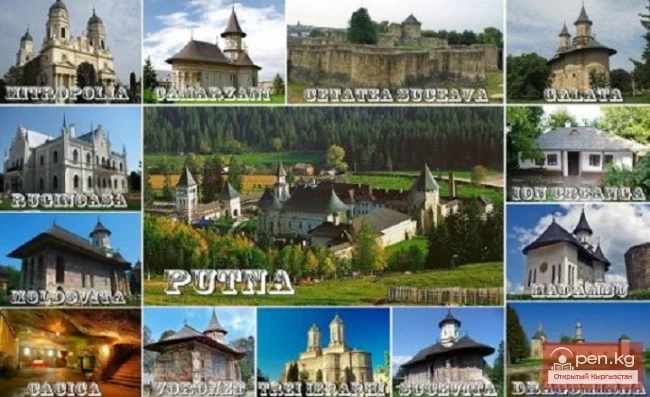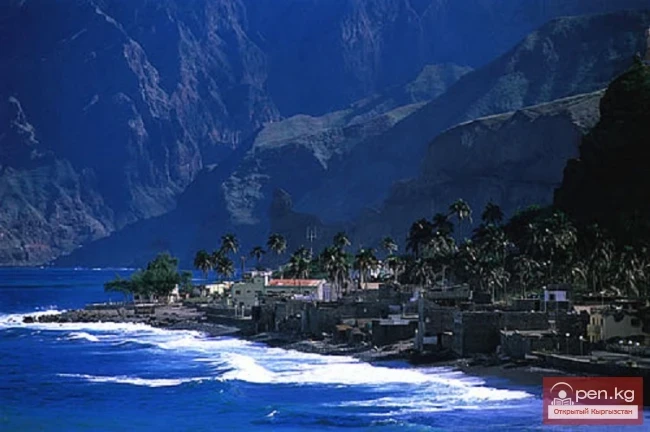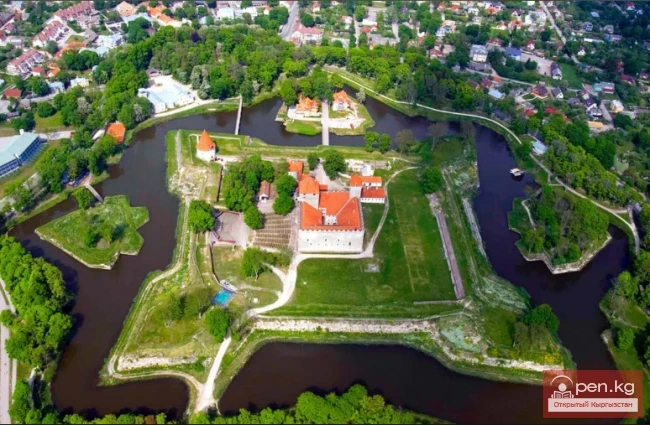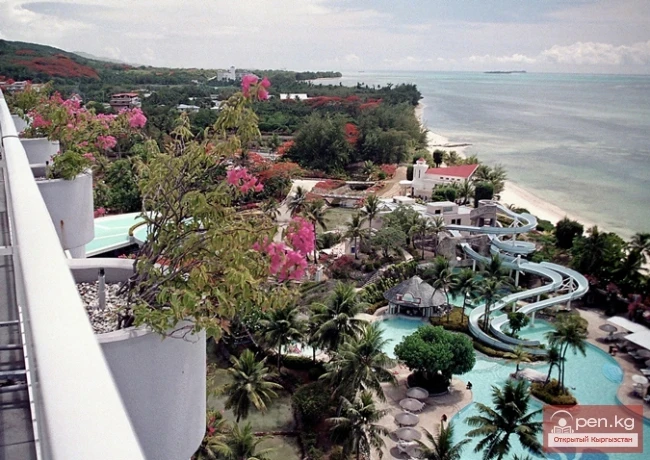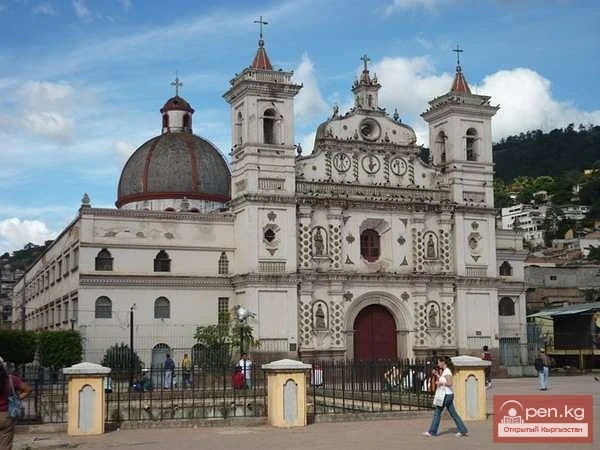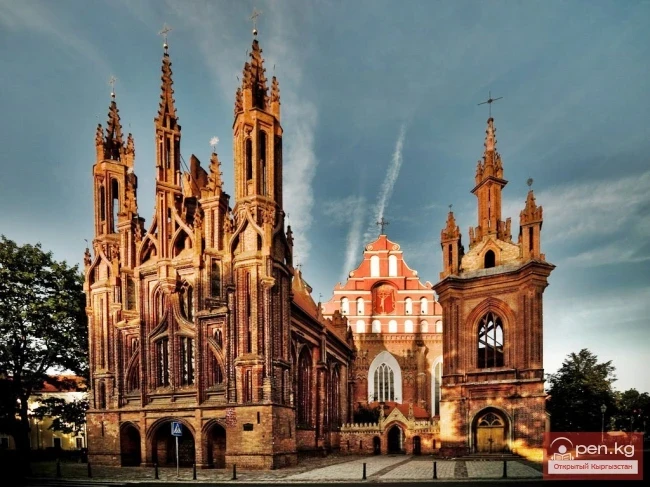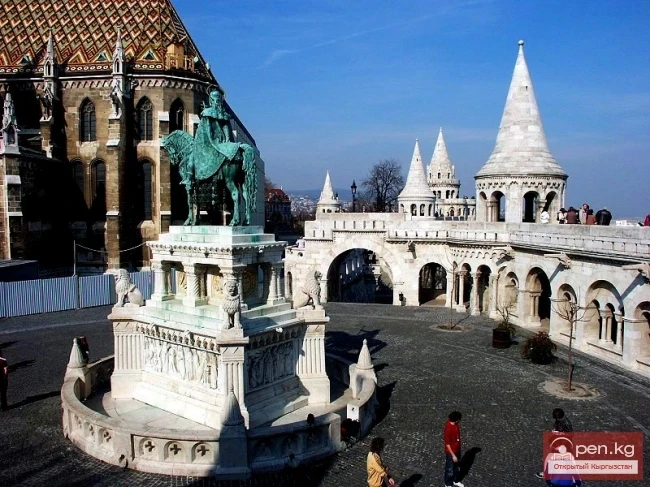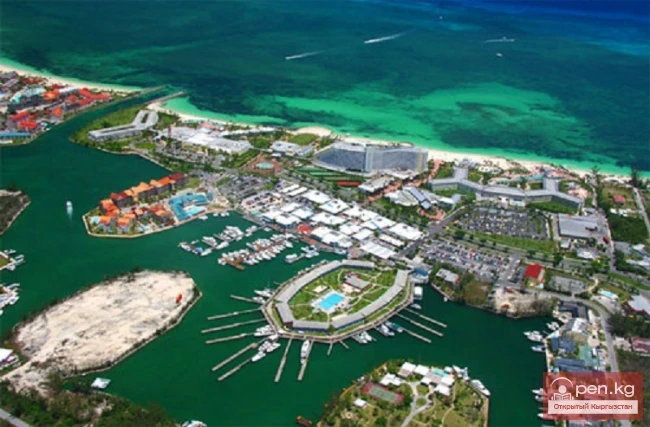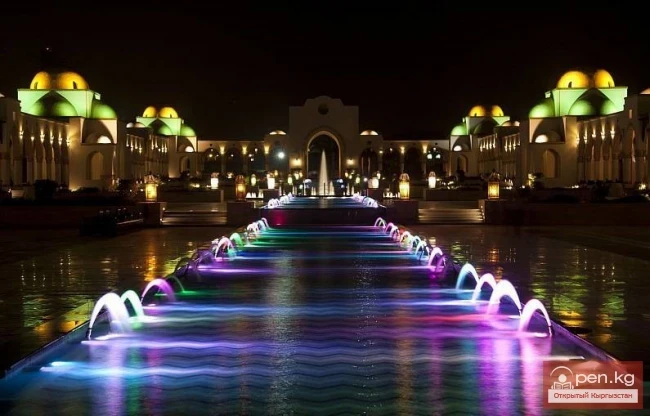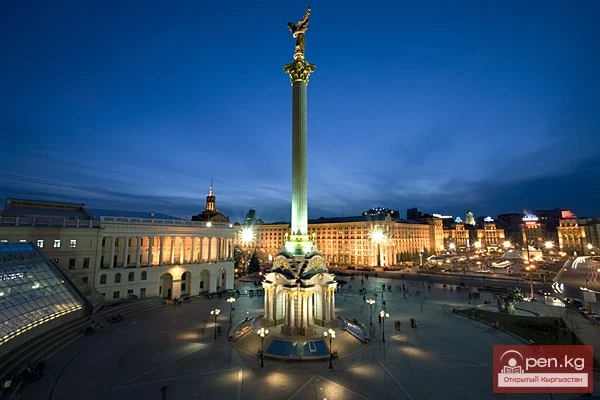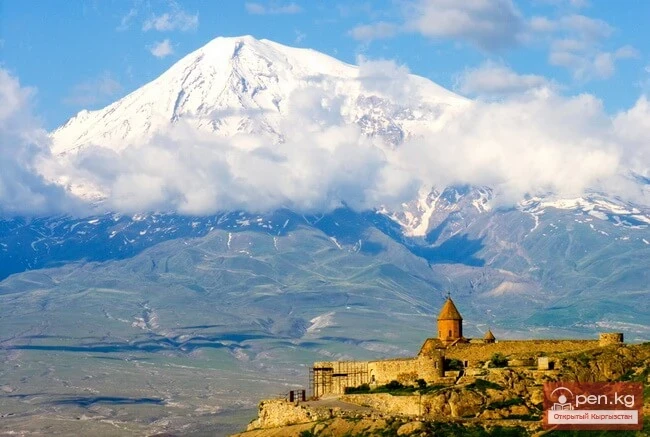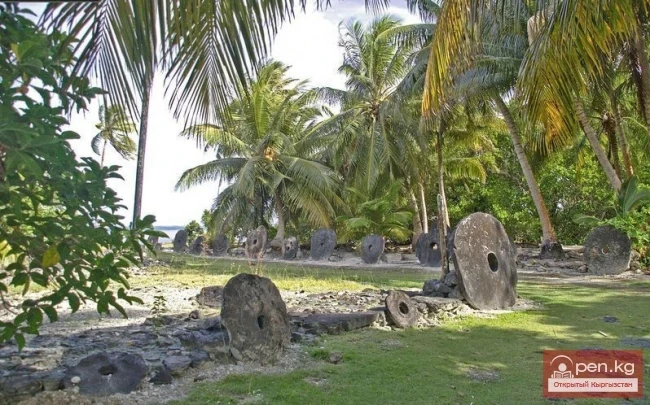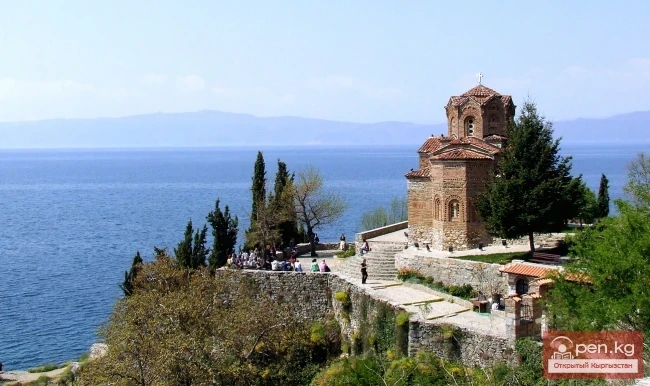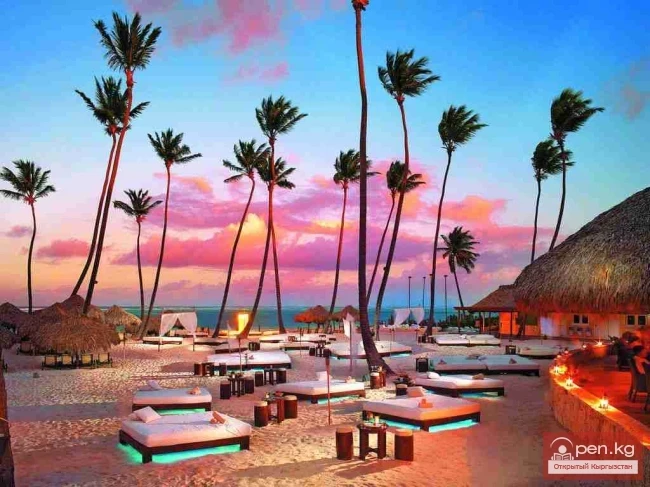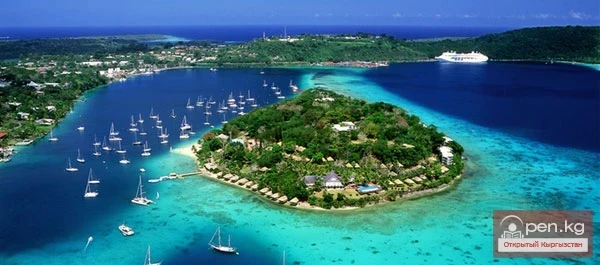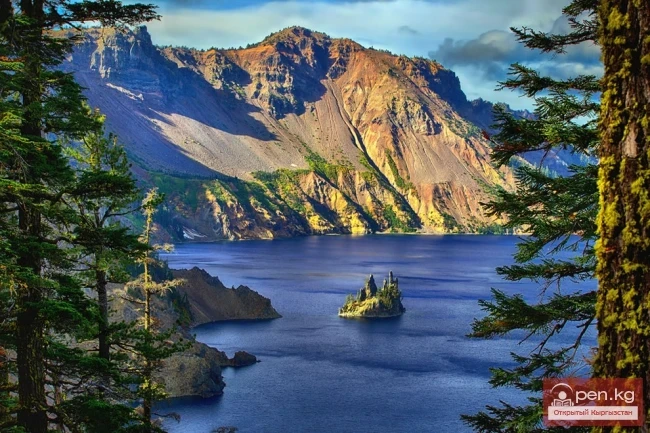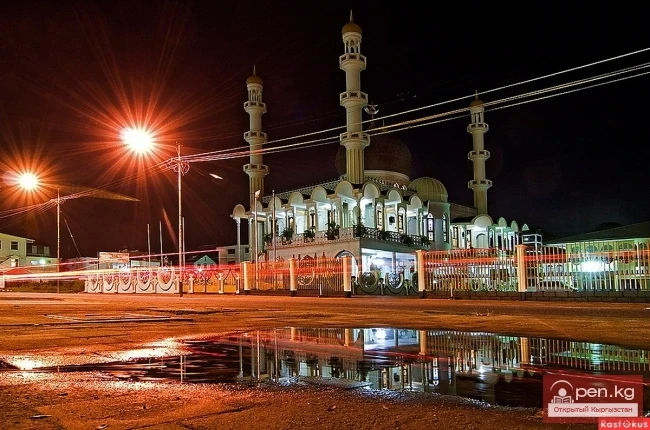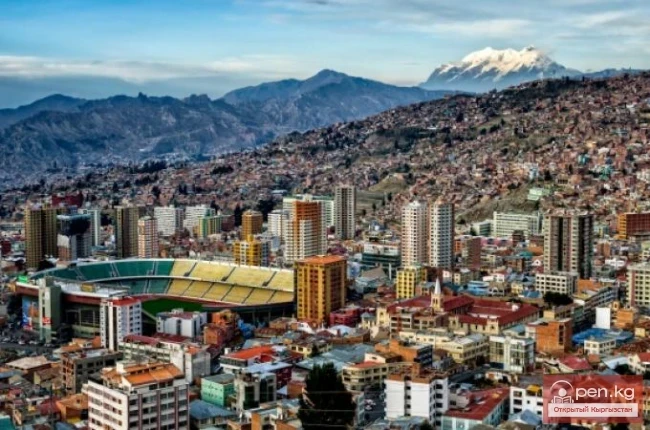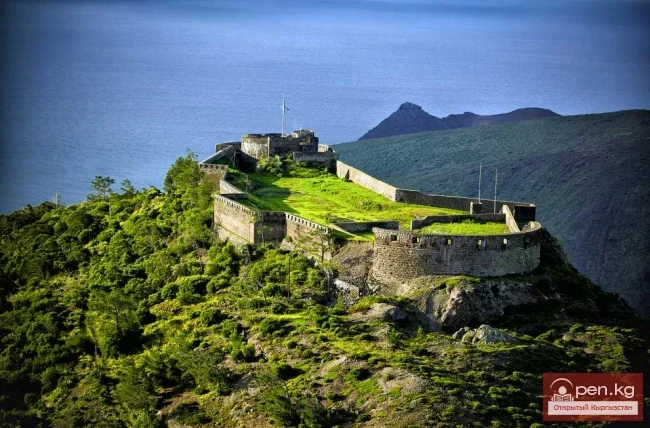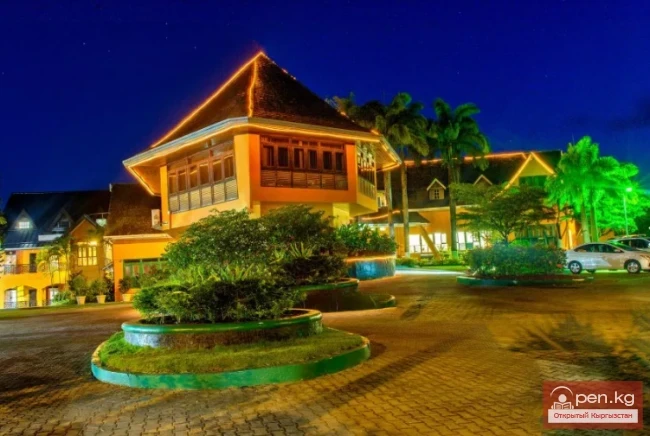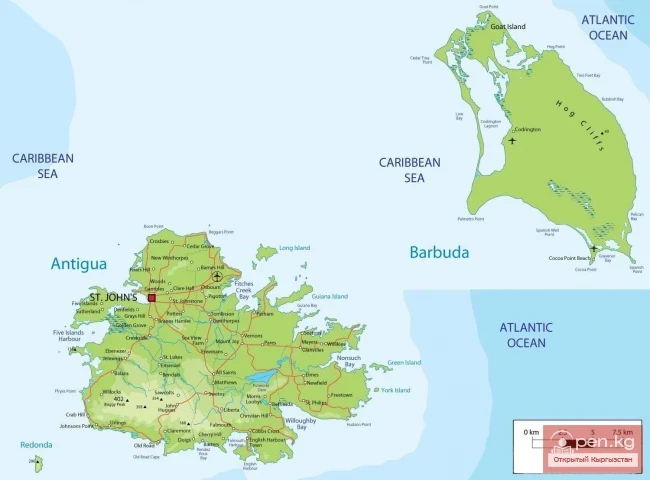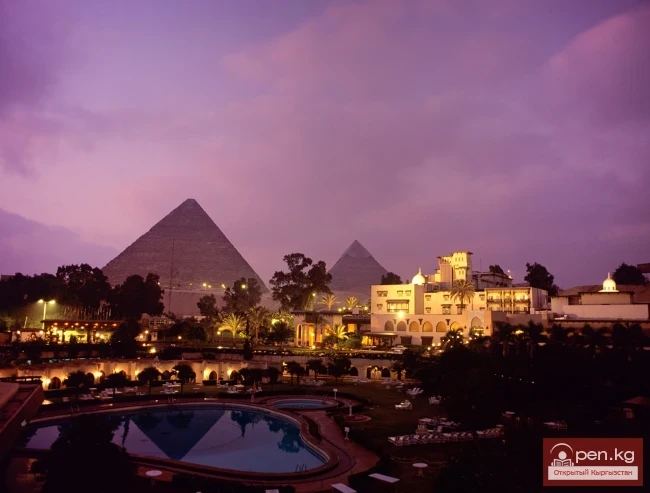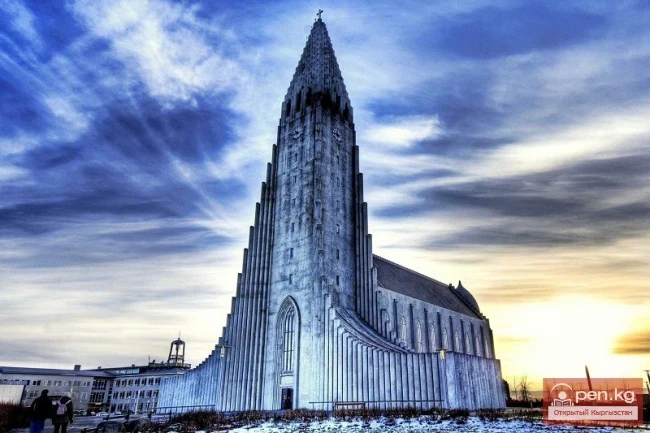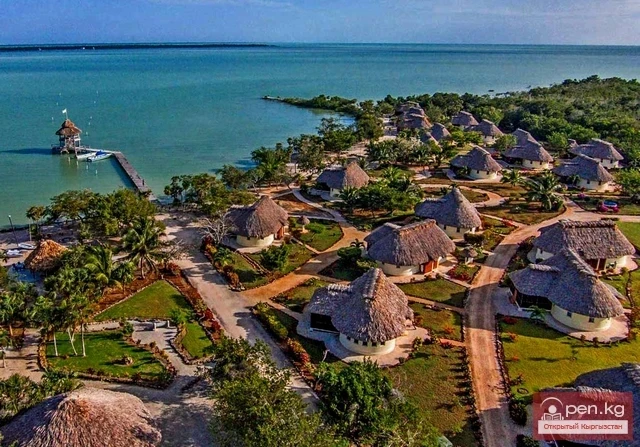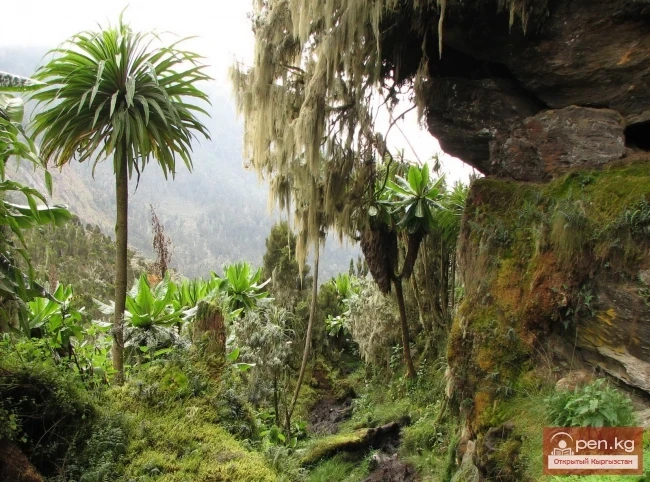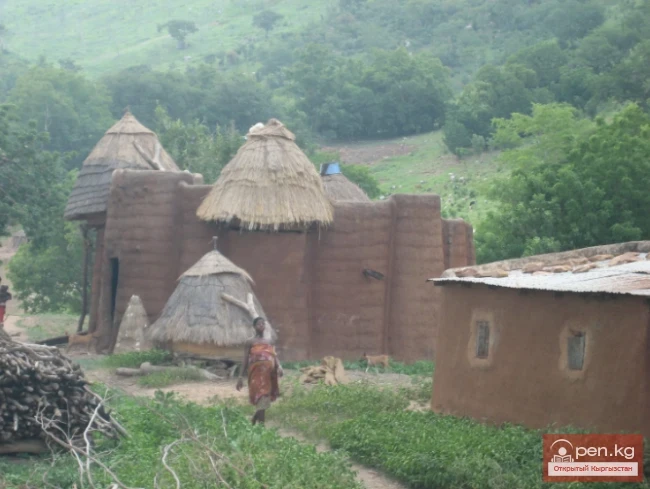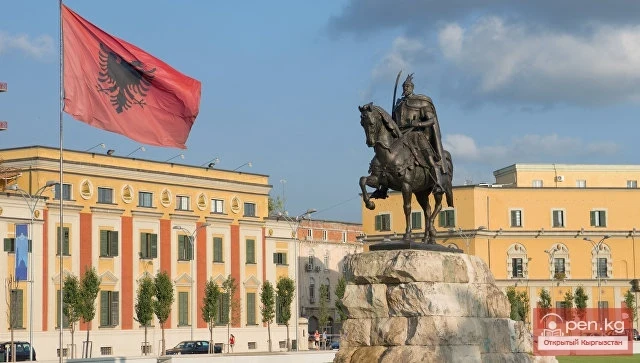
Republic of Albania
A country in southern Europe, in the southwestern part of the Balkan Peninsula, on the coast of the Adriatic Sea. Area - 28.7 thousand km². Capital - Tirana (over 800 thousand), largest cities: Durres, Elbasan, Shkoder. Administratively, it is divided into 12 prefectures and 36 districts. Population - 3.3 million (2005); 95% are Albanians. The official language is Albanian. Religion: the majority of believers are Muslims (mainly Sunnis, about 1/3 belong to the Shiite Bektashi sect); over 10% are followers of the Roman Catholic Church and about 20% of the Orthodox Church. Currency - lek.
It has diplomatic relations with the Russian Federation (established with the USSR in 1934, interrupted due to the occupation of Albania by fascist Italy in 1939; re-established on November 10, 1945, interrupted in December 1961, normalized on July 30, 1990).
National holiday - November 28 - Flag Day (independence of Albania was proclaimed in 1912).
According to the new constitution, which came into force on November 28, 1998, Albania is a parliamentary republic. The head of state is the president (A. Moisiu, elected on June 24, 2002). He is elected by the parliament for a term of 5 years. The highest body of state power and the only legislative body is the Kuvendi (parliament), consisting of 140 deputies elected by universal suffrage for a term of 4 years (the last elections were in July 2005). The highest executive and administrative body is the Council of Ministers. The chairman is S. Berisha (since September 2005).
More than 60 political parties are registered. The most influential are: the Democratic Party of Albania - founded in December 1990, chairman - S. Berisha (president of the country in 1992-97); the Socialist Party of Albania - established in June 1991 on the basis of the Albanian Party of Labor, leader - E. Rama; the Social Democratic Party of Albania - founded in April 1991, chairman - S. Gjinushi; the Albanian Republican Party - founded in January 1991, chairman - F. Mediu; the Movement of Socialists for Integration - founded in September 2004, chairman - I. Meta; the Union for Human Rights - created on the basis of the Democratic Union of the Greek minority ("Omonia"), founded in February 1991, chairman - V. Dule; the Democratic Alliance Party - created in November 1992, chairman - N. Ceka; the Albanian Agrarian Party - founded in 1991, chairman - L. Djuveli. The law prohibits the activities of parties of a racist, totalitarian, or fascist nature.
Since the early 90s, the religious activities of Islamic, Catholic, and Orthodox communities, banned in 1967 under E. Hoxha's regime, have resumed. More than 50 public organizations operate - youth, women's, human rights, veterans, and others.
Trade union associations: the Confederation of Trade Unions of Albania, the Federation of Independent Trade Unions.
In the 15th century, Albania was captured by the Ottoman Empire. Albania's independence was proclaimed on November 28, 1912, after Turkey's defeat in the First Balkan War. In 1924, a democratic government led by F. Noli came to power in Albania. After his overthrow, the Albanian feudal lord A. Zogu established a dictatorship and proclaimed himself king of the Albanians in 1928. In April 1939, Albania was occupied by fascist Italy. In 1943, German troops entered Albania. As a result of the national liberation struggle of the Albanian people in the context of the advance of the Red Army in the Balkans, the country was completely liberated from the occupiers on November 28, 1944.
In 1946, Albania was proclaimed a people's republic. From 1946 to 1991, a one-party regime of the Albanian Party of Labor existed in the country (until 1985 led by E. Hoxha). In the early post-war years, land reform, nationalization of enterprises, banks, wholesale trade, means of transport and communication, and a transition to a planned economy were carried out.
From 1944 to 1948, Albania closely cooperated with Yugoslavia, and after relations with it were disrupted, actively interacted with the USSR and Eastern European countries. In 1949, it joined the Council for Mutual Economic Assistance (CMEA), in 1955 it signed the Warsaw Pact, and was admitted to the UN. In the early 60s, Albania's relations with the USSR were severed. Albania ceased to participate in the CMEA, and in 1968 it withdrew from the Warsaw Pact. Until the late 70s, China became Albania's main ideological, foreign policy, and economic partner.
In December 1976, the country was renamed the People's Socialist Republic of Albania, and in April 1991 - the Republic of Albania. Since 1989, Albania began a process of radical transformations that led to the collapse of the existing totalitarian system. The democratization of public and political life was accompanied by the renewal of state-legal structures.
A legal political opposition emerged, taking shape into parties. In March 1991, the first parliamentary elections were held on a multiparty basis. However, the ongoing instability of the domestic political situation led to the change of three governments and the holding of early parliamentary elections in March 1992, which were won by the Democratic Party. The five-year (1992-97) rule of the Democratic Party was characterized by the gradual establishment of political and legal foundations of a state with a transitional economy.
However, mistakes in the practical activities of the Democratic Party, its refusal to cooperate with the opposition Socialist Party, and a high level of smuggling and corruption led to a deep financial, economic, and political crisis that erupted in the spring of 1997 due to the collapse of financial pyramids that absorbed over 1.2 billion dollars. The crisis led to early parliamentary elections (June - July 1997). The left-center government formed as a result overcame the consequences of the crisis and continued the course of market reforms during its 8-year rule. In the next parliamentary elections (July 2005), the Democratic Party of Albania won, and its leader S. Berisha formed a broad coalition government on September 10, 2005.
In foreign policy, Albania pursues a course of integrating the country into the sphere of international political and economic cooperation. On July 30, 1990, a protocol was signed to normalize relations between the USSR and Albania and to resume the activities of embassies. In 1991, diplomatic relations were restored with the USA and the UK. Albania became a full member of the OSCE (June 1991), the Council of Europe (July 1995), participates in inter-Balkan cooperation, established diplomatic relations and signed a trade and economic agreement with the EU, is a member of the North Atlantic Assembly, the CEAP, joined the PRM program (1994), joined the WTO, IMF, IBRD, and EBRD, became a co-founder of the CEI, and a member of the Central European Initiative (CEI). The priority direction of Albania's foreign policy is proclaimed to be joining the EU and NATO.
Albania remains an industrially underdeveloped, agrarian country. The share of agriculture accounts for over 45% of its GDP. In recent years, up to 25% of GDP is formed by construction and 15% by the service sector, which is entirely part of the private sector of the Albanian economy (the share of the latter in GDP reaches 85%).
Mineral resources: lignite, chrome, copper and nickel-iron ores, oil, natural gas. In the structure of industry, mining industries occupy a major place. The leading sector of agriculture is crop production. Grains, tobacco, sunflowers are grown, and fruit growing (olives, citrus fruits), viticulture, and mountain-pastoral animal husbandry are developed. The main mode of transport is road (18 thousand km of roads). The length of railways is about 500 km.
After the complete collapse of the administrative-command economic system (in 1990-92, GDP halved), by 1996, it was possible to achieve relative stabilization of the macroeconomic situation (GDP growth in 1995 - 11.3%, in 1996 - 14.3%). The privatization of land, urban housing, retail trade and services, transport, and construction has practically been completed. The privatization of large industrial facilities, the banking system, and telecommunications facilities continues.
However, some economic revival achieved by Albania in the first half of the 90s was nullified by the events of January - March 1997, which inflicted damage on almost all sectors of the country's economy estimated at 2 billion dollars. After the 1997 crisis, Albania, relying on external financial and economic assistance, achieved an improvement in macroeconomic indicators (GDP growth in 2000 - 7.6%).
Subsequent years were marked by a slight decline in economic growth (2001 - 6.5%, 2002 - 4.7%). But then it was possible to reverse this negative trend: in 2003 and 2004, growth was ensured up to 6%. Economic reforms aimed at strengthening market relations continue in the country. The average annual inflation in 2004 was 3% (in 2003 - 2.3%, in 2002 - 3%).
Albania is one of the economically poor countries in Europe.
The average annual income per capita, according to official data, was 2563 dollars in 2004. The average salary in the public sector is 118 dollars. According to official data, unemployment is about 17% of the working-age population (according to unofficial data, up to 30%).
Albania's foreign economic ties are mainly oriented towards EU countries and the region. The main foreign economic partners are Italy, Greece, Germany, Turkey, and Macedonia. EU countries account for over 90% of the total volume of foreign trade.
In Albania, there are over 250 students and schoolchildren per 1,000 people. The higher education system includes 5 universities, 2 agricultural institutes, an institute of arts, physical culture, and pedagogical institutes.
More than a hundred newspapers and magazines are published, the largest of which are: "Shekulli," "Koha Jon," "Gazeta Shqiptare," "Zëri i Popullit," "Rilindja Demokratike," and others. The Albanian Telegraphic Agency (ATA), the state television and radio company, more than 20 private television channels, and over 30 private radio stations operate.
